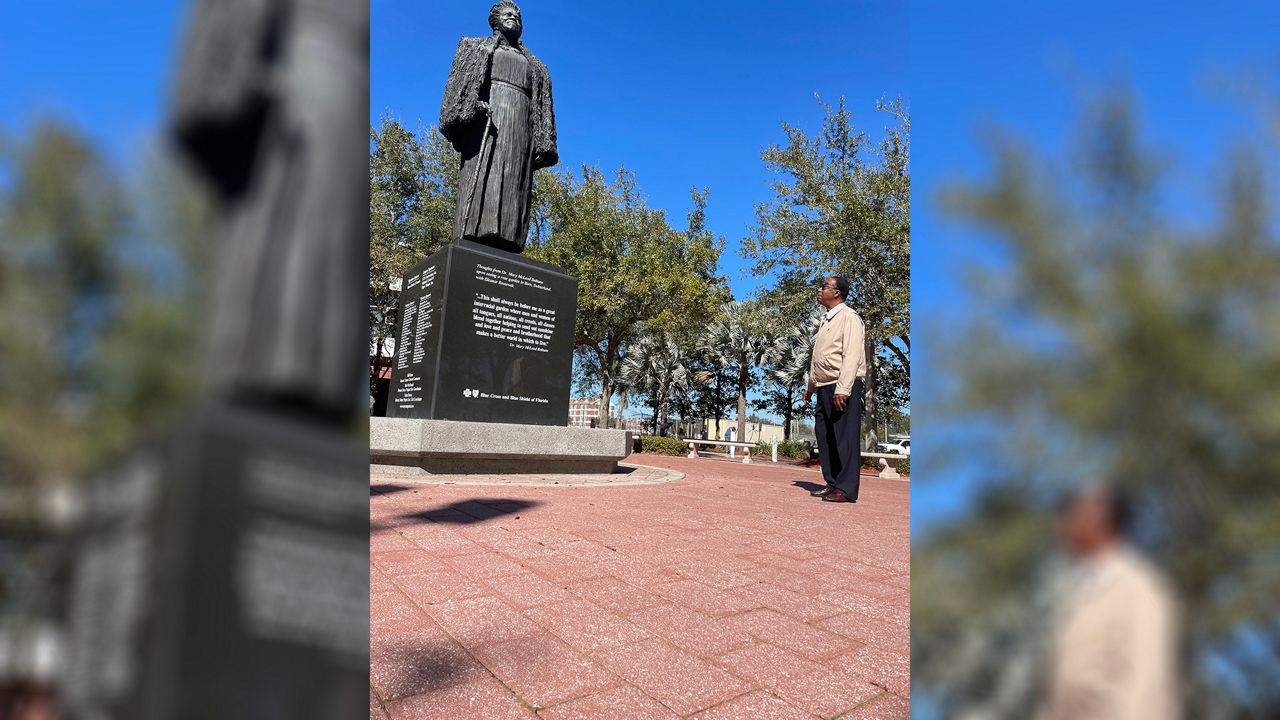DAYTONA BEACH, Fla. — Historically Black colleges and universities — known as HBCUs — were established in the United States in the 19th century to provide undergraduate and graduate level educational opportunities for people of African descent.
Black students were unwelcome at existing public and private institutions of higher education, despite the passing of specific legislation, which resulted in a lack of educational opportunities.
The very first HBCU, Cheyney University of Pennsylvania, was founded in 1837 — and is still standing today.
There are over 100 HBCUs currently in the U.S., with four in Florida, including Bethune-Cookman University in Daytona Beach.
Dr. Mary McLeod Bethune founded the school in 1904 with only $1.50 and faith in God, according to Dr. Tasha Lucas-Youmans, the Dean of Libraries at BCU.
Dr. Lucas-Youmans said Bethune formed lasting bonds with other HBCUs, often sharing resources with one another, and creating what many call an unmatched cultural experience.
“At an HBCU, there is an effect where you bring in the culture of the African American experience, where you couple that with a little bit of church experience, and a little bit of down home goodness, and the creativity of our Black people, all in the mix around education and bettering ones self. Family comes out of that and that is at the heart of the HBCU experience,” Anthony Jones, the Vice President of Enrollment Management at BCU, said.
Winston Bonnett, a senior at BCU, said the sense of family drew him to an HBCU.
“I can speak on Bethune-Cookman. We are really a family, like if anything happens, we will all come together and try to find the solution to a problem,” Bonnett said.
But it’s the history that kept Bonnett at Bethune-Cookman.
“Mary’s legacy is why I’m here,” he said.

(A statue of Dr. Mary McLeod Bethune stands on the Daytona Beach campus. Spectrum News/Curtis McCloud)
Someone who knows a lot about the history of Bethune-Cookman is Ervin Ross, a librarian at the school. Ross has worked at BCU for nearly 50 years before graduating from the university in 1973.
“I’ve seen it grow and I’ve met a lot of interesting people,” he said.
Living in Hastings, Florida, Ross got the chance to come to Daytona Beach and participate in the homecoming parade. That's where he fell in love with the marching men of Bethune-Cookman and decided to attend school at the HBCU.
Ross’ dream of a college education was nearly deferred when he couldn’t afford the tuition. Thankfully, the school allowed him to work in the library to pay for his education.
“I said, well, I’ve got to go back home because I don’t have enough money. They said, no, you’re not going home. We’re going to take let you work in the library. That way you can make your balance up and stay in school,” Ross said.
Jones said enrollment is up and he expects that to continue because of increasing interest in Historically Black institutions.
“We’ve always said that here at Bethune-Cookman University, we get to know our students by their names and not by numbers,” Ross said.
“Here I’m not just a number. I know all the faculty and staff, the student body. I just believe it was for me,” Bonnett expressed.
Lucas-Youmans believes some HBCUs might not be standing today if it weren’t for the connections Bethune made early in her life.
Ross said he is forever grateful for entrusting an HBCU with his education and lasting career. He hopes the legacy of these treasured institutions will enrich even more lives.
“We need this type of institution because we help the underprivileged so much,” he said.
The other three HBCUs in Florida are Edward Waters University, Florida Agricultural and Mechanical University, and Florida Memorial University.


